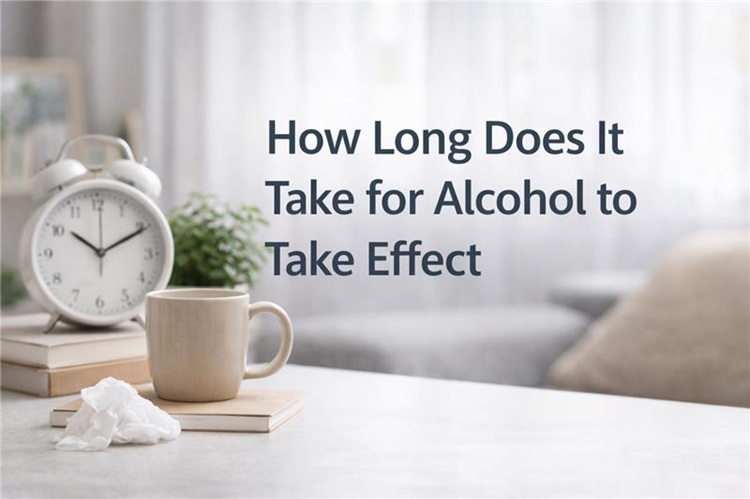In This Blog
- What levels of care in mental health treatment mean
- How inpatient and outpatient treatments differ
- When to consider stepping up to a higher level of care
- How each level, Outpatient, PHP, IOP, Inpatient, and Residential, works
- Where to find effective, compassionate treatment near you.
Mental care is not applicable in the model of one size fits all. The amount of treatment to be taken right is based on the symptoms you are experiencing, the support, and also on your general stability. Mental health levels of care exist within the levels of care of talk therapy, which is offered to organized residential programs, all in an attempt to be able to reach the individual in his/her recovery process.
The continuum of care is a type of clinical model that is applied to identify how many and how many times a professional requires care. It will assist in making sure that people will be handled well and that security, stability, and the process of mental wellness will be taken care of.
Did you know? One in every five adults (in the United States) is estimated to be diagnosed with a mental illness annually (National Institute of Mental Health, 2024).
Finding the Right Level of Support for Lasting Recovery
The level of treatment can make the difference in recovery. The majority of individuals will begin with an outpatient therapy as the first option, yet might be referred to a more organized setting in the event of symptom exacerbation. Other people can start with inpatient stabilization and gradually decrease to lower levels of treatment.
The question of the appropriate degree of support is a matter of compromise, to provide just the right amount of structure to get back on one hand and not so much that independence is discouraged on the other.
Why Levels of Care Matter in Mental Health Treatment
The level of care also assists in making sure that you are given sufficient care and not excessive care or under-research of your case. A man with an anxiety disorder of a mild severity may be treated once per week, and a patient who has suicidal thoughts may need 24 hours per day as an inpatient.
The continuity offered by the levels of care also gives the patients continuity as they go through crisis and maintenance. It is a better treatment, relapse prevention, and coping method in the long run. risis and maintenance stages. It is a more effective treatment, relapse prevention, and long-term coping means.
100% Confidential Support is Available 24/7
No matter what you’re going through, you’re not alone. Our dedicated team is here to provide a safe, judgment-free space where you can talk openly and honestly. Whether you need emotional support, resources, or just someone to listen.
We’re here for you—completely confidential and always respectful of your privacy. Call us today!
1. Outpatient Care
Outpatient mental health therapy offers maximum flexibility to those who will safely manage their day-to-day life through the therapeutic process. It includes:
Individual Therapy
Emotional triggering factors, improved coping, and increased personal development are achieved through individual therapy under the direction of a licensed therapist. It is to be used in case of mild depression, anxiety, or stress management.
Group Therapy
Group sessions the group session is one in which the therapist takes the lead and one gets a good space to exchange their experiences in the group and learn together with the group members who may be sharing the same problems. Group therapy assists in enhancing community support and responsibility.
Medication Management
The necessity of the medicine is evaluated by psychiatrists or nurse practitioners, and its effectiveness is evaluated. Regular follow-ups are to be done to ensure that the adjustment of dosage can be done safely and to ensure that the side effects are contained.
Outpatient care is a very person-centered form of treatment and may be applied to a patient who requires continuous care but does not require being hospitalized.
2. Partial Hospitalization Program (PHP)
Partial Hospitalization Program (PHP) is a form of treatment whereby the members are given intensive but rigorous treatment during the day, but the patient is allowed to go home in the evening.
PHP can be applied to such patients who need more than an outpatient treatment, but they do not need the supervision on a 24-hour basis. The average length of stay and 4-6 hours/day are 5 and 4-6, respectively.
Therapies may include:
- Cognitive Behavior Therapy (CBT).
- Dialectical Behavior Therapy (DBT).
- Medication management
- Workshops about life skills and psychoeducation.
PHP also remains stable during crises, and in most scenarios, it serves as a bridge between inpatient and outpatient care
3. Intensive Outpatient Program (IOP)
Intensive Outpatient Program (IOP) is a smaller version of PHP, which is defined by a lesser number of hours, weekdays, and days.
This model is applicable in patients who default in the high rates of care or whose symptoms are average, which requires frequent organization.
IOP combines:
- Group counseling and personal counseling.
- Relapse prevention methods.
- Family counseling sessions
- Mindfulness and art therapy programs are whole-person programs.
Patients become acquainted with coping mechanisms in real life through IOP as they are reintegrated into normal lives.
4. Inpatient Hospitalization
Inpatient mental health treatment is a univariate treatment that spans 24 hours in a hospital or special mental health facility, and it concerns individuals with acute crisis or suicidal ideation, or the acute manifestations of mental illness, who cannot maintain normal day-to-day functioning.
Treatment involves:
- Monitoring and supervision of safety.
- Psychiatric and medical stabilization.
- Individual, group, and family intensive therapy.
- Developed discharge planning.
This level of care is a short-term stabilization of a crisis, which then moves to an outpatient or step-down program.
5. Residential Treatment
Residential programs mean that it is a very organized home 24/7 therapeutic home setting. In comparison to inpatient hospitalization, residential treatment is more permanent and is oriented to more profound emotional healing and behavior modification.
The residents are being subjected to therapy sessions, wellness/activities, in which they are being subjected to skills building. The interactive process helps the individuals to lose triggers and acquire new recovery behaviors.
In the best way possible, the residential care would be most suitable in situations where the individuals are undergoing a treatment-resistant depression, trauma, or co-occurring substance use disorder.
Begin personalized mental health treatment at DeLand Treatment Solutions.
How Levels of Care Work Together
The mental health care system is more of a continuum, whereby the patients can move upwards or downwards based on their needs.
Level of Care | Setting | Focus | Duration |
Outpatient | Community or private practice | Ongoing therapy and medication | Flexible, long-term |
IOP | Structured outpatient | Skill-building and symptom management | Weeks to months |
PHP | Day treatment | Intensive therapy and stabilization | Several weeks |
Residential | Home-like setting | Long-term healing and daily structure | 30–90+ days |
Inpatient | Hospital | Crisis stabilization | A few days to weeks |
The integration also guarantees continuity and does not allow relapse, and it offers people a steady stream of guidance and professional supervision.
When to Consider a Higher Level of Care
Necessities to prevent a crisis would be achieved with the understanding of outpatient therapy.
Consider more vigorous attention during having:
- Freak-outs or emotional breakdowns are normal.
- Homicidal ideation or self-harming.
- Inability to perform in the workplace and at home.
- Abuse of a drug or the worsening of the symptoms
Seeking higher care is not a setback; it’s a step toward recovery and safety. Mental health treatment is most effective when tailored to your evolving needs.
CALL US NOW
DeLand Treatment Solutions will iron out the details for you in a manner that will make you confident in your path to sobriety. That first simple call is your ticket to making DeLand Treatment Solutions your solution for addiction. Get the freedom from addiction that you deserve today.

Mental Health Treatment Center in DeLand
DeLand Treatment Solutions (DTS) is the place where caring professionals will offer evidence-based programs, which will be offered at both care levels: as outpatient therapy, as well as inpatient assistance.
They deal with the causes of mental suffering in a holistic way, which helps them in developing their long-term recovery. All treatment programs will consist of therapy, drug treatment, and holistic care to improve emotional stability.
Be it nervous, depressed, traumatized, or bipolar, the highly qualified clinicians will be able to help you in every single step of the healing process.
Key Takeaways
- The care is structured into several levels: outpatient care, IOP, PHP, residential care, and inpatient care.
- The level of care needed will depend on the severity of the symptoms and the safety needs.
- The levels will enable the accomplishment of the transition and avoid relapse.
- The outpatient treatment is flexible, and on the other hand, inpatient treatment is safe and stable.
FAQs About Mental Health
What are the different levels of mental health care?
All levels of mental health care include outpatient therapy, intensive outpatient programs (IOP), partial hospitalization programs (PHP), residential treatment, and inpatient hospitalization. Each level provides a degree of organization, the strength of the treatment, and the degree of supervision depending on the needs of an individual, and also offers the success of the recovery process and its permanence in the long term.
How do I know which level of care is right for me?
The degree of your treatment depends on the intensity of your symptoms, the degree of your safety needs, and the success with which you manage daily life. General evaluation by a qualified practitioner will be carried out to recommend the most suitable program, between the more flexible outpatient therapy and the more rigid inpatient or residential therapy, to stabilize and proceed with the recovery process.
What makes inpatient treatment different from outpatient care?
The inpatient care offers supervision and intense treatment to patients in crisis or those at risk of harming themselves, 24 hours a day. Outpatient care, in its turn, is the type in which a patient can spend time at home; however, visit an office of a therapist at the predetermined time. The significant distinction is made in the structure, time, and the degree of medical care.
What happens after completing a higher level of care?
Once the inpatient, residential, or PHP treatment is over, the patients are supposedly moved to the outpatient therapy or IOP. It is a mandatory procedure of downgrading to move forward with the progress, without the relapse, and turning to the normal life slowly, with the constant therapeutic and psychiatric support to improve the coping capacity and emotional stability.
Why are multiple levels of mental health care important?
The range of the levels of care contributes to the personalized and flexible approach of the treatment. People can move up or down the continuum depending on their level of progress. This implies sustained support, relapse prevention, and the proper framework, autonomy, and long-term mental health to realize long-term recovery.
References
- National Institute of Mental Health (NIMH). Mental Illness Statistics. Updated 2024.
- American Psychological Association. Levels of Care in Mental Health Treatment. 2023.
- Substance Abuse and Mental Health Services Administration (SAMHSA). Continuum of Care Model. 2024.
- National Alliance on Mental Illness (NAMI). Understanding Treatment Options. 2023.





















